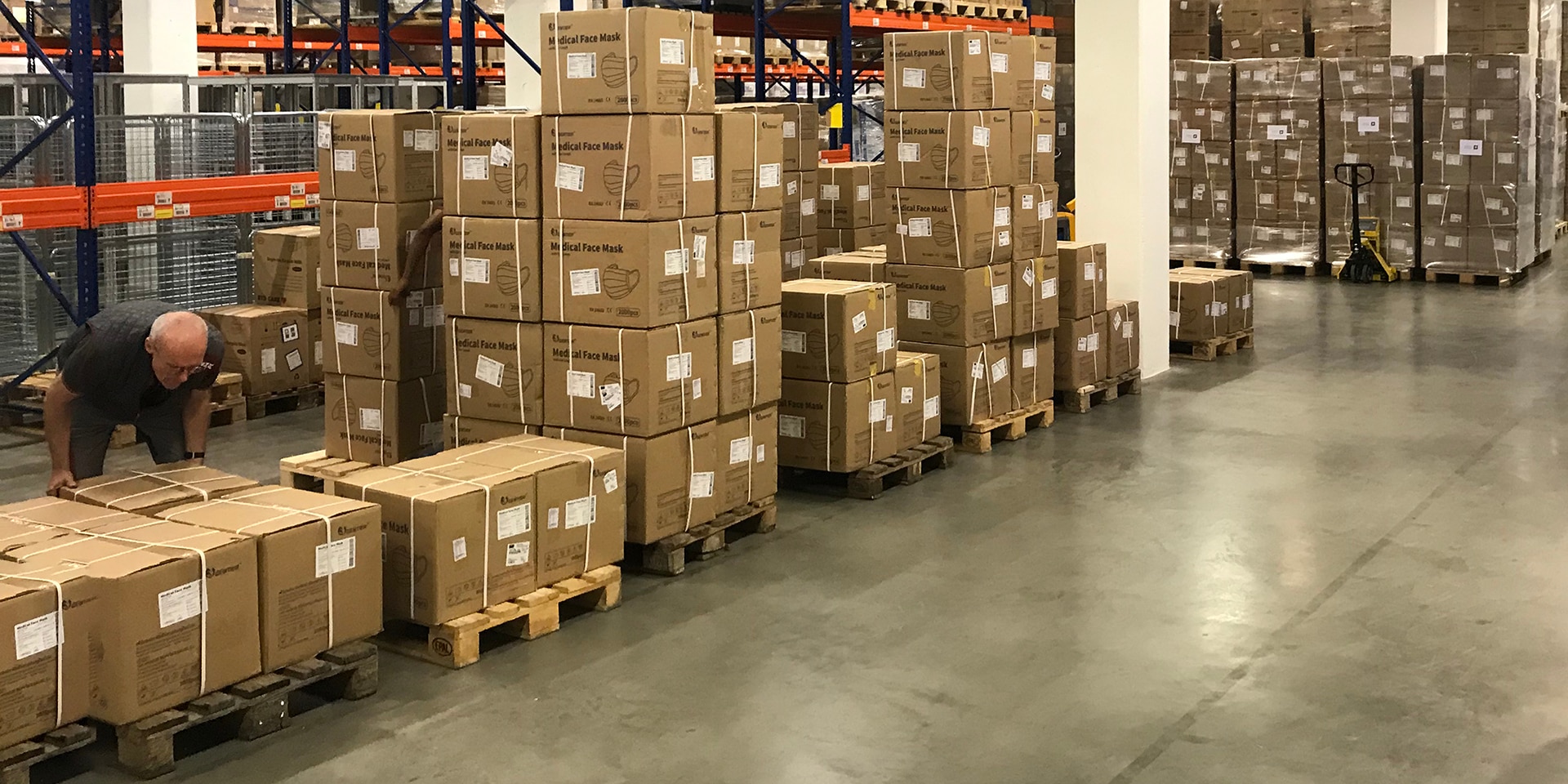UNHCR: Switzerland donates masks for relief work on the ground
A global pandemic does not only pose a threat to people. It is also a major obstacle for humanitarian aid. If protective equipment is not available, it is not possible to provide assistance on the ground. Swiss Humanitarian Aid is therefore donating three million face masks in response to this problem and in order to protect the people working on the front lines. The consignment was handed over to the Office of the United Nations High Commissioner for Refugees (UNHCR) on Tuesday, 08 September 2020.

At the Humanitarian Aid depot, the masks for the United Nations High Commissioner for Refugees (UNHCR) are sorted and prepared for transport. © FDFA
Two weeks ago, it became mandatory to wear face masks on public transport in Switzerland. Certain institutions, schools and parts of the public sector are also relying on masks as part of their protection concept. In Switzerland, we are fortunate to have enough protective equipment for everyone – whether as an individual passenger on the train, at work, or in the country's healthcare facilities.
This level of protection is not something that other people around the world can take for granted. Protective equipment and sanitation facilities in some African countries are often in short supply. But it is precisely in these regions – particularly those affected by major humanitarian crises – that rapid and unbureaucratic assistance in the field is essential for people's survival. "There are numerous challenges when it comes to humanitarian aid. Either the roads are impassable, or there's no end to the exchanges of fire. And with COVID-19 there's now a new risk – infection," explains Manuel Bessler, head of Swiss Humanitarian Aid.
Mask shortages jeopardise relief aid worldwide
The shortage of masks, gloves, gowns and other personal protective equipment means that many organisations are forced to restrict or even stop their activities in places with large numbers of people, such as refugee camps. Aid workers on the ground often have to go into quarantine, or have only limited access to those who need help the most.
"Shortages in protective equipment in such places means that precisely at those times when people are exponentially more dependent on humanitarian aid – like during a global pandemic – it is actually impossible for them to get any assistance," points out Bessler. This is also a problem for the UNHCR, which works in countries whose health systems are particularly vulnerable to the current challenges.
Switzerland donates three million masks
To help aid workers and healthcare staff provide assistance on the ground during these difficult times, Switzerland is donating three millions masks with a total value of CHF 1.5 million in response to an appeal by the UNHCR. The action is being coordinated by the Humanitarian Aid Department of the Swiss Agency for Development and Cooperation (SDC). The supplies were handed over to the UNHCR in Pratteln on Tuesday, 08 September 2020. A first consignment left Switzerland for the Democratic Republic of the Congo and others are planned for Sudan and South Sudan. The masks are intended for aid workers and healthcare staff in these three countries.
The need for humanitarian assistance in South Sudan was high even before the current pandemic broke out. More than one million people have been forcibly displaced and the country's health system is precarious. Global pandemics put millions more people at risk. "With these masks, UNHCR South Sudan will be able to strengthen its work in the 16 health facilities and the two referral hospitals in the refugee reception areas. These are also accessible to the host communities. As a result, more refugees and displaced persons and Southern Sudanese will benefit from this assistance," explains Adan Ilmi, UNHCR representative ad interim in South Sudan.
Where do the donated masks come from?
The SDC's Humanitarian Aid Department closely examined how the masks would be handed over to the UNHCR before the donation was made. This was done in consultation with the Armed Forces Pharmacy, the Federal Office of Public Health (FOPH) and the Federal Office for National Economic Supply (FONES). The supply of masks required for Switzerland is not affected by the current action. The donated masks are not from the country's reserve that had to be recalled earlier this month.
